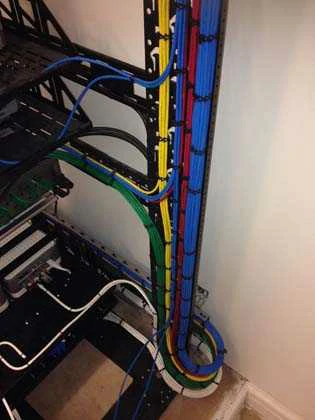Polyvinyl chloride (PVC) wire and cable raw materials

Polyvinyl chloride (PVC) wire and cable raw materials
Polyvinyl chloride (PVC) is a widely used synthetic plastic polymer that has numerous applications in various industries. One of its important uses is in the production of wire and cable raw materials. PVC possesses several properties that make it an ideal choice for such applications.
Firstly, PVC is known for its excellent electrical insulation properties. This means that it can effectively insulate electrical wires and cables, preventing the leakage of electric currents and ensuring the safety of the users. PVC’s high dielectric strength and low dissipation factor contribute to its superior electrical insulation performance.
Secondly, PVC wire and cable raw materials exhibit good mechanical properties. PVC is a flexible material, allowing for easy bending and installation of wires and cables. It also displays high tensile strength, which enables the wires and cables to withstand external forces and resist breakage or deformation. Additionally, PVC is resistant to abrasion, making it suitable for applications where the wires and cables may encounter friction or wear.
Moreover, PVC is chemically stable and resistant to various environmental factors. It does not corrode or react with moisture, chemicals, or UV radiation, ensuring the long-term durability of the wires and cables. This makes PVC wire and cable raw materials suitable for indoor and outdoor applications, even in harsh environments.
Another advantage of PVC is its cost-effectiveness. PVC is a relatively affordable material compared to other options such as rubber or thermosetting plastics. Its availability and ease of manufacturing contribute to its economical nature, making it a popular choice for wire and cable production.
Furthermore, PVC wire and cable raw materials are versatile in terms of color and appearance. PVC can be easily colored during the manufacturing process, allowing for customization based on specific requirements. This makes it easier to identify and differentiate wires and cables based on their functions, enhancing safety and ease of use.
Despite its advantages, PVC wire and cable raw materials have faced criticism due to their environmental impact. The production and disposal of PVC can release toxic substances such as dioxins and phthalates into the environment, which pose risks to human health and ecosystems. However, efforts are being made to develop more sustainable alternatives and improve the recycling process for PVC materials.
In conclusion, Polyvinyl chloride (PVC) wire and cable raw materials offer numerous benefits in terms of electrical insulation, mechanical properties, chemical resistance, cost-effectiveness, and versatility. Despite concerns about its environmental impact, PVC remains a widely used material in the wire and cable industry. Continued research and innovation are crucial to finding sustainable solutions and minimizing the ecological footprint associated with PVC production and disposal.
.webp)



